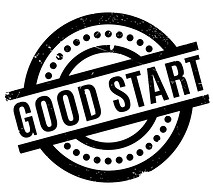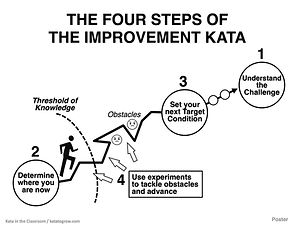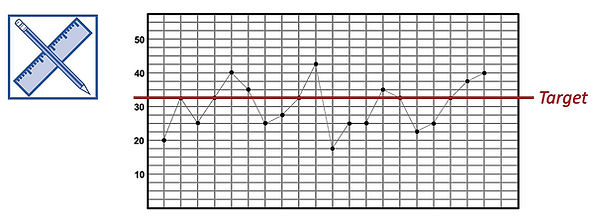Five Starter Kata Routines, Ready to Plug Into Your Lesson

Below are five free compact practice routines you can use to help students develop their scientific-thinking skills. Each one comes with instructions. There are PPTX files too, in case you would like to adjust the routines to suit your classroom and terminology.
Pick one and try it. Download one of the routines, add it to an existing lesson, and reflect. Build from there, as appropriate for what you want to achieve.

Bring the routines to life! Show & tell us how you’re using them in your classroom and join the conversation, on LinkedIn with #KiC.

Use these Kata for Cross-Context Interleaving!
Practicing the same Starter Kata across different activities helps build transferable skill, not
just task-specific performance. It helps students go from knowing how to understanding why.
-
Using the same pattern in different activities helps students grasp the principle behind the pattern, not just the steps, making it easier to apply when conditions change.
-
Applying a Kata in multiple settings reveals nuances that deepen understanding, and supports a growing sense of mastery.
-
Repetition across contexts avoids mindless drilling; each activity challenges the Kata in a new way.
Illustration by James Yang
The Experimenting Record
The Experimenting Record is a pencil & paper form that incorporates a scientific pattern for planning and reflecting on experiments. Students strengthen their problem-solving mindset by focusing on the next step, not the final answer, developing a sense for the iterative nature of learning and letting their thinking evolve through experimentation. This practice routine helps students learn how to deal with uncertainty by running experiments, and can easily be added to many activities and projects.
The Experimenting Record is a good place to start with KiC.
Editable PPTX

The Coaching/Reflection Questions
The Coaching/Reflection Questions are a short, structured series of questions that mirror a scientific-thinking pattern. Educators use them — and eventually students can use them for themselves — to help students practice a scientific approach to working toward goals. The questions can be used in any classroom as a guide for conducting regular reflections. Regularly working through them encourages iterative thinking, supports a growth mindset, and helps establish a safe, engaging and collaborative learning environment.
The Coaching/Reflection Questions are often used together with the Experimenting Record.
Editable PPTX
The Improvement Kata Poster
The Improvement Kata Poster is a visual tool that illustrates a four-step scientific pattern for pursuing goals. It also shows the Threshold of Knowledge concept. The poster works hand-in-hand with the Experimenting Record and the Coaching/Reflection Questions.
As students engage in activities or assignments, you can use the poster to help them internalize both the scientific pattern of working and the idea of a threshold of knowledge. While students naturally focus on the immediate content of the task at hand — the problem they are trying to solve — referencing the poster helps keep their attention on the broader, underlying pattern of scientific thinking they are practicing.
Editable PPTX
Run Charts
Making run charts often provides eye-opening, data-based clues that help students better understand what is actually going on, versus what they might assume is going on. But it takes a little practice to make run charts something that students will go ahead and create on their own.

The Threshold of Knowledge
These instructions help you make "Threshold of Knowledge" or "Knowledge Threshold" part of your classroom language. It's the point where what we know ends and what we don’t yet know begins. It marks the boundary between our current understanding and the learning zone that lies ahead. Recognizing and referring to this ever-present but shifting line helps students see that not knowing isn’t a failure—that it’s normal, and a starting point for discovery and learning!








